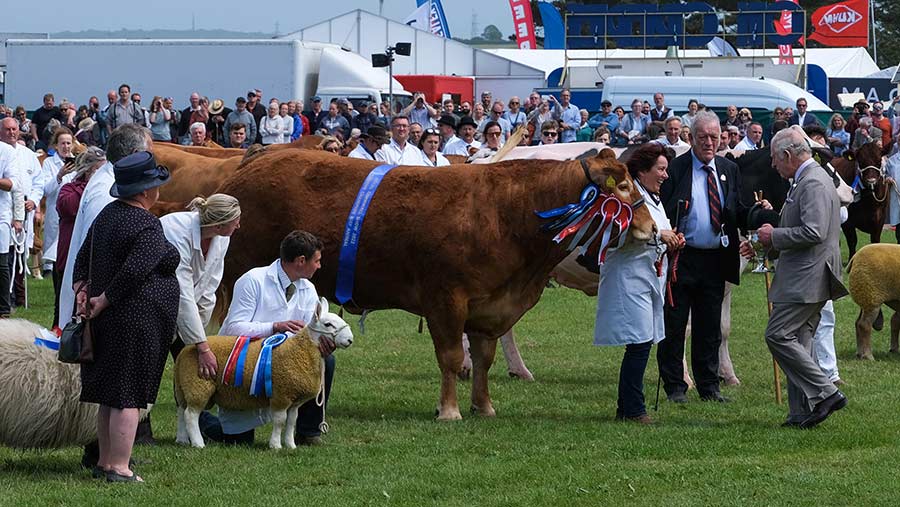FW Opinion: Defra’s food strategy reveals Johnson’s weakness
 © Simon Maycock/Alamy Stock Photo
© Simon Maycock/Alamy Stock Photo There are fewer beasts in the journalistic world with a thicker skin than a BBC journalist.
Frequently assaulted from the left for being too right wing, and from the right for being too left wing, it must often feel like a thankless task.
When all else fails, they fall back to their final redoubtable defence – the fact that if they are being roundly condemned by both sides then they must be somewhere in the middle ground, after all.
Although George Eustice is a member of the Cabinet instead of a journalist, this may be the defence he has fallen back on this week after at least one aspect of Defra’s food policy for England was condemned by anyone with access to a microphone.
See also: FW Opinion: Farming must help educate consumers about food
The environmental lobby wanted a stronger commitment by government to bring down consumption of meat. They didn’t get it.
The health lobby wanted a tax on sugar and salt. It didn’t get it.
Some of the farm lobby would have been delighted with a longer transition period away from the Basic Payment Scheme and more protection on standards against imports. It didn’t get it.
Yet the dish wasn’t quite empty – all sides did get a little home-grown gruel.
Among other things there was a commitment to maintain the current level of food self-sufficiency, which may cheer farmers, and an ambition to further improve food labelling to more clearly show what is and isn’t healthy and sustainable.
There were also some welcome commitments to expand the horticulture sector, albeit lacking urgency given farmers are currently having to plough in crops that should be feeding people due to labour shortages.
A lot of jam tomorrow and none of it enshrined in new legislation.
Even Henry Dimbleby, the author of the food strategy to which the government was responding, described it as “not a strategy” as it fails to articulate the problems the supply chain now faces and how to solve them.
The question must therefore be asked – if this policy isn’t for any of the voices trying to tug the lapels of Defra in their direction, then who or what is it for?
The answer is that this is not a carefully crafted pitch to find common ground in the centre of the various factions warring over what the future of food, farming and the environment should look like.
[Defra’s food policy for England] A lot of jam tomorrow and none of it enshrined in new legislation
This is a diluted document with one aim – to tiptoe through the warring factions within the Conservative Party itself and prevent another ideological struggle that Boris Johnson doesn’t have the authority to win.
After the recent confidence vote in his future as party leader, the prime minister can’t afford to alienate any more MPs than the 141 who already want him to step down as leader.
This means scrapping everything radical – such as Mr Dimbleby’s original proposals – that would have upset more libertarian Tories and caused another spat.
If you’re in favour of small government, a Cabinet in limp mode may suit you very much, as they might end up spending less of your money.
But I can’t imagine all voters will look favourably upon a government, when an election does come, if its primary aim seems to be self-preservation rather than delivering on its manifesto commitments and tackling the cost-of-living crisis.
This week we’ve also learned the Tories have failed to persuade the Scottish government to go along with their plans for gene editing.
Like a farmer waiting for the fuel price to drop, this government doesn’t have much left in the tank.

